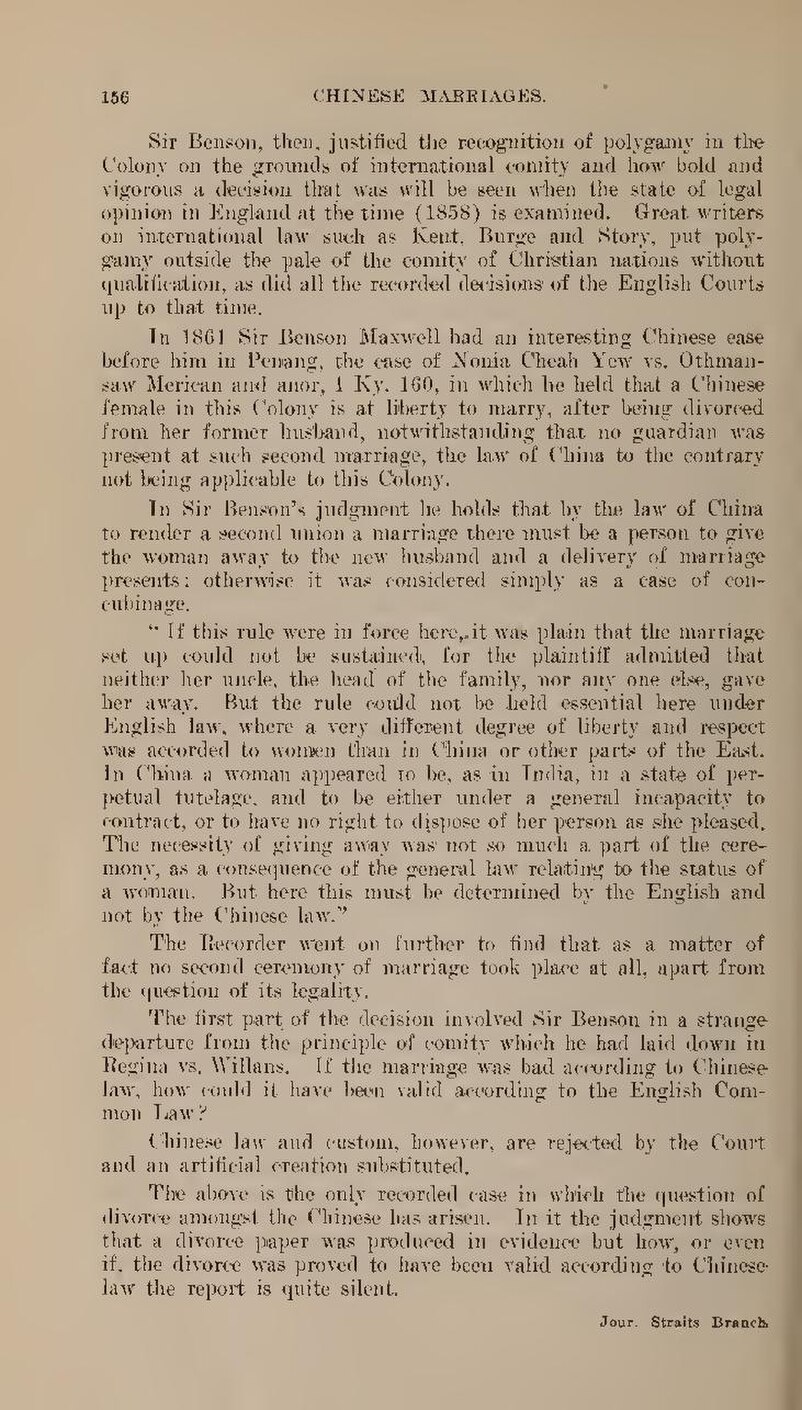Sir Benson, then, justified the recognition of polygamy in the Colony on the grounds of international comity and how bold and vigorous a decision that was will be seen when the state of legal opinion in England at the time (1858) is examined. Great writers. on international law such as Kent. Burge and Story, put polygamy outside the pale of the comity of Christian nations without qualification, as did all the recorded decisions of the English Courts up to that time.
In 1861 Sir Benson Maxwell had an interesting Chinese case before him in Penang, the case of Nonia Cheah Yew vs. Othmansaw Merican and anor, 1 Ky. 160, in which he held that a Chinese female in this Colony is at liberty to marry, after being divorced from her former husband, notwithstanding that no guardian was present at such second marriage, the law of China to the contrary not being applicable to this Colony.
In Sir Benson's judgment he holds that by the law of China to render a second union a marriage there must be a person to give the woman away to the new husband and a delivery of marriage presents otherwise it was considered simply as a case of concubinage.
"If this rule were in force here, it was plain that the marriage set up could not be sustained, for the plaintiff admitted that neither her uncle, the head of the family, nor any one else, gave her away. But the rule could not be held essential here under English law, where a very different degree of liberty and respect was accorded to women than in China or other parts of the East. In China a woman appeared to be, as in India, in a state of perpetual tutelage, and to be either under a general incapacity to contract, or to have no right to dispose of her person as she pleased. The necessity of giving away was not so much a part of the ceremony, as a consequence of the general law relating to the status of a woman. But here this must be determined by the English and not by the Chinese law."
The Recorder went on further to find that as a matter of fact no second ceremony of marriage took place at all, apart from the question of its legality.
The first part of the decision involved Sir Benson in a strange departure from the principle of comity which he had laid down in Regina vs. Willans. If the marriage was bad according to Chinese law, how could it have been valid according to the English Common Law?
Chinese law and custom, however, are rejected by the Court and an artificial creation substituted.
The above is the only recorded case in which the question of divorce amongst the Chinese has arisen. In it the judgment shows that a divorce paper was produced in evidence but how, or even if, the divorce was proved to have been valid according to Chinese law the report is quite silent.
